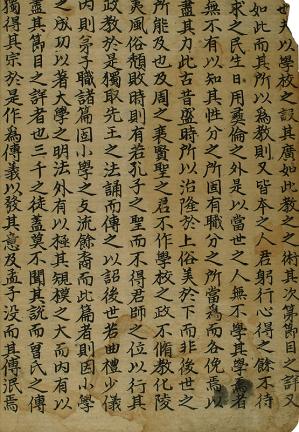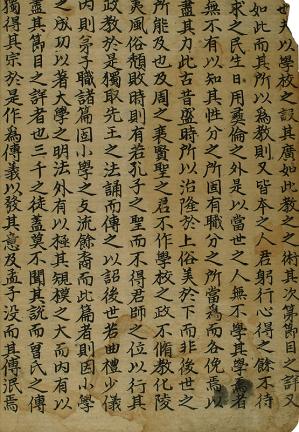국가유산 종목별 검색
보물
이언적 수고본 일괄 (李彦迪 手稿本 一括)Manuscripts of Yi Eon-jeok
| 분 류 | 기록유산 / 전적류 / 필사본 / 사본류 |
|---|---|
| 수량/면적 | 12책 |
| 지정(등록)일 | 1975.05.01 |
| 소 재 지 | 경상북도 경주시 |
| 시 대 | 조선 명종 2∼8년(1547∼1553) |
| 소유자(소유단체) | 이*** |
| 관리자(관리단체) | 이*** |


보물
이언적 수고본 일괄 (李彦迪 手稿本 一括)Manuscripts of Yi Eon-jeok
| 분 류 | 기록유산 / 전적류 / 필사본 / 사본류 |
|---|---|
| 수량/면적 | 12책 |
| 지정(등록)일 | 1975.05.01 |
| 소 재 지 | 경상북도 경주시 |
| 시 대 | 조선 명종 2∼8년(1547∼1553) |
| 소유자(소유단체) | 이*** |
| 관리자(관리단체) | 이*** |

ⓒ 2000. CULTURAL HERITAGE ADMINISTRATION. ALL RIGHTS RESERVED.



 문화유산
문화유산


